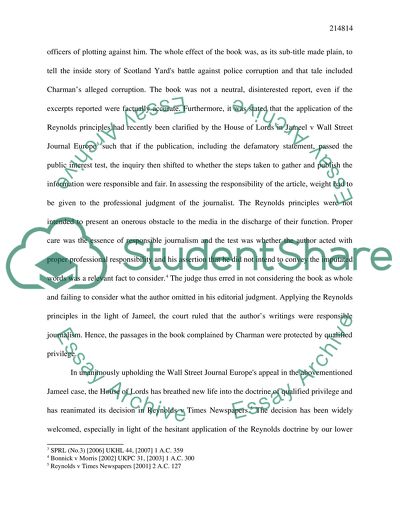Cite this document
(“Tort Law Case Study Example | Topics and Well Written Essays - 2500 words”, n.d.)
Tort Law Case Study Example | Topics and Well Written Essays - 2500 words. Retrieved from https://studentshare.org/law/1502983-tort-law
Tort Law Case Study Example | Topics and Well Written Essays - 2500 words. Retrieved from https://studentshare.org/law/1502983-tort-law
(Tort Law Case Study Example | Topics and Well Written Essays - 2500 Words)
Tort Law Case Study Example | Topics and Well Written Essays - 2500 Words. https://studentshare.org/law/1502983-tort-law.
Tort Law Case Study Example | Topics and Well Written Essays - 2500 Words. https://studentshare.org/law/1502983-tort-law.
“Tort Law Case Study Example | Topics and Well Written Essays - 2500 Words”, n.d. https://studentshare.org/law/1502983-tort-law.


